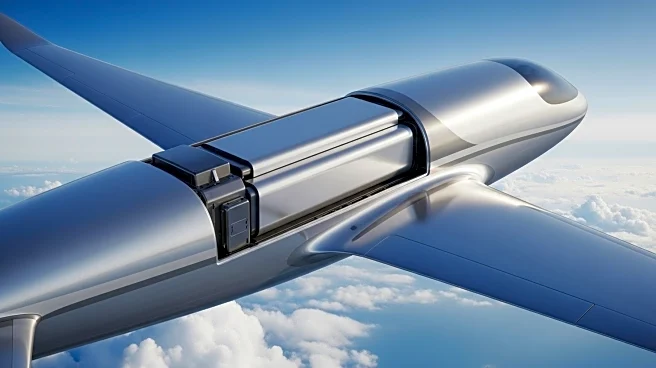What is the story about?
What's Happening?
The electric aviation industry is facing significant challenges due to the limitations of current battery technology. While companies like Beta Technologies are making strides with electric planes capable of short flights, the lack of advanced battery solutions restricts their range and commercial viability. Despite some successes, such as the Pipistrel Velis Electro receiving certification, the industry struggles with the energy density of batteries compared to jet fuel. As a result, some companies are exploring hybrid models that combine electric and conventional propulsion to extend range and reduce emissions.
Why It's Important?
The development of electric aviation is crucial for reducing the aviation industry's carbon footprint, which accounts for a significant portion of global greenhouse gas emissions. However, the current limitations of battery technology hinder the widespread adoption of electric planes. The industry's exploration of hybrid models represents a pragmatic approach to achieving lower emissions while maintaining operational feasibility. The success of these initiatives could pave the way for more sustainable aviation solutions, influencing regulatory policies and investment in green technologies.
What's Next?
The electric aviation industry will continue to seek breakthroughs in battery technology to enhance the range and efficiency of electric planes. In the meantime, hybrid models may serve as a transitional solution, offering a balance between sustainability and practicality. Companies will likely focus on securing certifications and partnerships to advance their technologies. Additionally, the industry may see increased investment in alternative fuels and propulsion systems as part of a broader effort to achieve carbon neutrality.

















